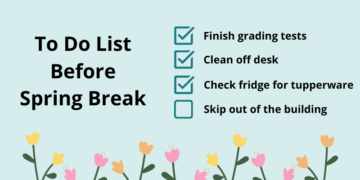Using Your Platform As An Educator To Inspire
Educators have a lot of power when you really stop and think about it. Teachers spend hours every day with children during the most formative years of their lives, and provide information that students typically take for granted. Curriculums change over the years, but the information students learn in the classroom is deeply ingrained, even after many years.
Fortunately, most people who get into teaching do so because they want to help the next generation of learners to succeed. Standardized curriculums help to ensure that students have a well-rounded education, but some teachers still manage to go above and beyond to help their students learn and grow into well-rounded adults.
As an educator, it’s important to realize just how much power you have, and how you can use it for good. Teachers often don’t realize that they have a platform and a persuasive voice in society, let alone how to use it to motivate others. Here’s how you can leverage your position as an educator, your expertise, and your ability to inspire.
How You Can Leverage Your Position As An Educator To Inspire
1. Making Education Fun
The best teachers understand that to motivate and inspire students, you have to make learning fun. It takes a lot of creativity to turn a generally “boring” topic into something that’s fascinating for your audience! Kids get inspired to learn more about subjects on their own when their first experiences with a topic are fun and inspiring.
These days, there are tons of options for creating engaging lesson plans that will help your students learn and retain information. Making education fun isn’t just for young kids, either; college students, parents, and anyone else you’re teaching will be inspired when you put the fun and curiosity back into the learning process.
2. Putting Learning Into Context
Lots of people look back on their days in school and wonder why they had to learn certain skills. While it’s easy to see why we learn subjects like reading, writing, and basic math, other subjects can seem less important to students. As an educator, putting these subjects into context can help students feel more invested in what they’re learning [1].
For instance, hands-on science is not only fun, but can also make theoretical learning come to life and show how knowledge can be applied to daily life. Discussing historical events and comparing them to current events can show students how social progress is made and how to think critically about change and policy. Sometimes, creating the right context can mean the difference between an indifferent learner and total engagement!
3. The Power Of Being An Engaging Speaker
New teachers are usually intimidated the first time they step in the front of the class. This is understandable since students of all ages can be harsh critics! Although most teachers do eventually start to improve their ability to engage and instruct students simply through practice in the classroom, it can be helpful to work on public speaking skills outside of class as well [2].
The best teachers aren’t necessarily the smartest. The best teachers are educators who know how to engage their students and make the information they’re sharing memorable, in order to improve student retention and create positive associations with learning. No teacher wants to be the droning voice from Charlie Brown. If educators want to inspire and motivate, they have to understand how much the delivery of the material matters!
4. Social Media As A Tool For Positive Education And Action
Social media can be a source of misinformation and a place for cyberbullies to harass and hide from their victims. However, it can also be a powerful tool for those who want to make positive changes in the world. Teachers can use social media to create content that is engaging and inspiring.
One of the best aspects of social media as a platform for educators to teach and motivate is its wide reach. Teachers can help students all over the world learn complex topics and get inspired to learn. Some teachers manage to reach millions and create a major positive impact with the content they share.
5. Use Your Voice To Push For Change
The education system in the United States has come a long way from the days of corporal punishment and rote memorization as a teaching technique. Still, as we look over the history of education, it’s clear that some issues still remain. There are systemic inequalities that still exist, meaning that some students have fewer resources and less support than others when in school.
As an educator, you have a front-row seat to the challenges students face in their daily lives. You can use your platform to lobby for change and help lawmakers understand the inequalities affecting students and the impact these inequalities ultimately have on society as a whole.
Your Inspiring Voice Can Move Mountains
As busy as teachers are, using your platform as an educator is a worthwhile use of your time. By inspiring and motivating others, you don’t have to do all the work yourself. You can leverage the power of your voice to help make things happen and get more people involved in the issues you care about.
Whether you’re passionate about fixing inequalities in the education system, getting more people involved in the fight against climate change, or ensuring that children have basic financial and political literacy by the time they leave school, your voice can help. Don’t underestimate the power you have as an educator—the chances are good that your students truly look up to you!
References:
[1] Contextual learning: linking learning to the real world
[2] Public Speaking Tips for Teachers and Educators




















